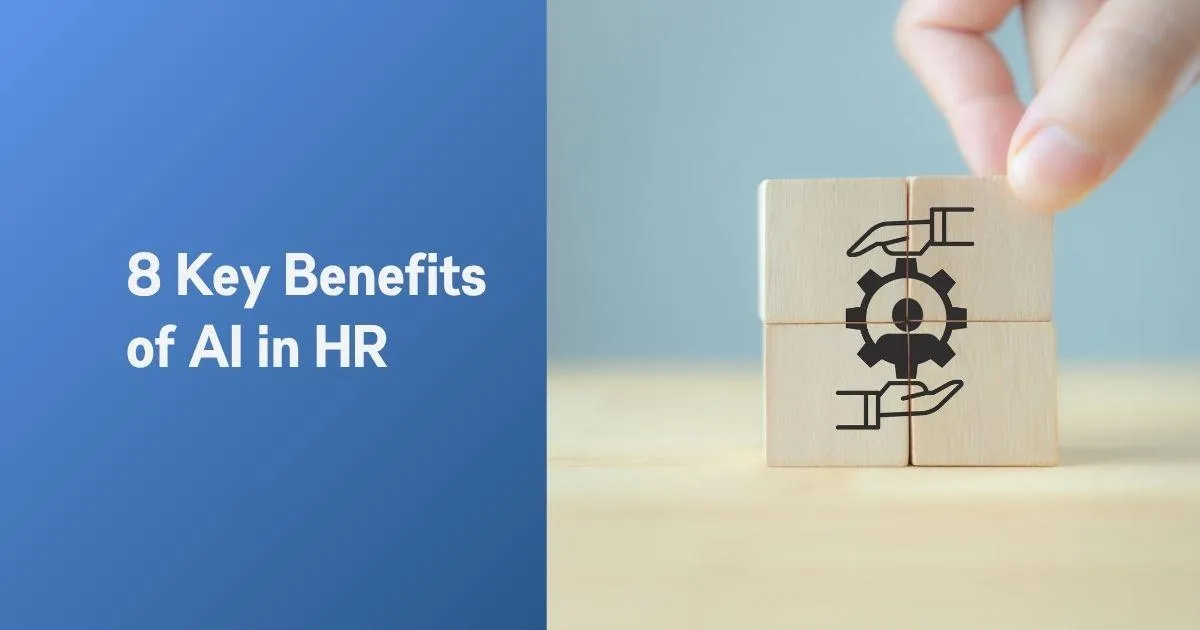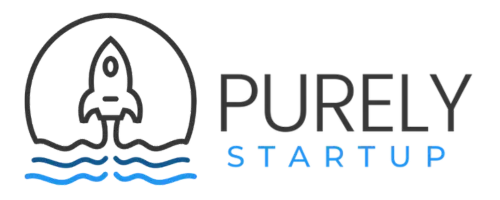
8 Key Benefits of AI in HR
You’re sorting through a pile of resumes at 8 AM, when a little alert tells you that your AI assistant has ranked candidates by fit score in seconds. That’s one of the many benefits of AI in HR making your job easier these days. And you’re definitely not alone in this shift.
In fact, 38% of HR decision-makers already use AI in their daily workflows (Deel data commissioned with YouGov). Yes, it's already happening.
In this article, I’ll show you how the benefits of AI in HR can ease your workload, save you time, and maybe even help you enjoy your job a little more. Keep reading, because the ways AI can change your work might surprise you. Once you see how, you’ll wonder how you managed without it.
8 Key Benefits of AI in HR
What is AI in Human Resources (HR)?
8 Benefits of AI in HR (That Make Your Work Less Stressful)
2. Better Candidate Experience
4. Improved Employee Retention
5. Workforce Insights and Planning
6. Personalized Learning and Development
7. Real-Time Feedback and Surveys
8. Easier Compliance and Paperwork
Generative AI in HR is Your Creative Partner
What is AI in Human Resources (HR)?
To put it simply, AI in HR means using smart computer programs that can learn from data and make decisions or suggestions. Consider it as a helpful assistant who never gets tired and can quickly find the best job applicants or spot problems before they get worse.
For example, instead of reading through hundreds of resumes, AI can scan them and pick out the best candidates based on skills and experience. Apart from that AI also helps with training employees and answering their questions. It essentially handles the repetitive tasks so HR professionals can focus on their most important responsibilities.
👉 Want to hire faster and smarter? Here’s how AI is reshaping HR and how to use it to your advantage.
8 Benefits of AI in HR (That Make Your Work Less Stressful)
Here we'll walk through eight practical ways AI is helping HR teams do their jobs better. These are advantages you’ll see and feel, whether you’re in HR or simply working at a company that wants to support its people better.

1. Faster Hiring
Recruiters often spend nearly 23 hours just to screen resumes for a single role. That's nearly three full workdays gone before interviews even begin. AI helps speed this process by quickly scanning resumes and matching them with job requirements.
Instead of a person reading hundreds of resumes line by line, AI recruitment tools look for the skills and experience that matter most. This means companies can find the right candidates a lot faster.
For example, a large retail company reduced its average hiring time by 30% after using AI tools. This faster process benefits the company and job seekers by providing them with quicker feedback. Plus, AI can automate simple tasks such as scheduling interviews or sending follow-up emails, so recruiters don’t get stuck doing repetitive work.
All in all, AI makes hiring smoother and less frustrating for everyone.
2. Better Candidate Experience
Have you ever applied for a job and heard nothing back? You never receive updates, and you don’t know what’s going on. AI is changing that experience for the better. Thanks to chatbots and automated messaging, candidates get answers quickly and stay informed throughout the process. These AI assistants are available 24 hours a day.
They can answer common questions like ‘What’s the status of my application?’ or ‘When is the interview scheduled?’ This always-on communication makes candidates feel respected and valued from day one, long before they join the company.
Richard Branson once said, “Clients do not come first. Employees come first. If you take care of your employees, they will take care of the clients.”
When candidates feel cared for from the start, it sets a positive tone for their entire journey with the company.
3. Reduced Bias
Every company aims for fair hiring, however, sometimes unconscious bias can show up without anyone noticing. AI can help reduce this bias by focusing on facts rather than feelings. For instance, AI can hide information like names, ages, or genders during resume review.
This means decisions are based only on skills, experience, and qualifications. Not on anything unrelated to job performance. That said, AI isn’t perfect. If the data it learns from is biased, the AI can pick up those same mistakes. That’s why companies need to stay alert and regularly check how their AI tools are working.
When used properly, AI can make hiring more fair and open up chances for everyone.
In a way, it's similar to giving every candidate a fair race without any unfair advantages or disadvantages. And that’s exactly what good hiring should feel like.
4. Improved Employee Retention
Did you know that replacing an employee can cost a company anywhere from 90% to 200% of that employee's annual salary? This estimate, reported by SHRM, includes training and lost productivity costs. That’s a significant hit for any company and a strong reason why keeping employees happy and engaged matters so much.
This is where AI helps. It tracks patterns in employee behavior, like sudden drops in productivity, frequent absences, or lower participation in meetings or chats. These small signs can add up, and AI tools notice them before humans typically do.
If the system spots someone who might be thinking about leaving, HR can check in early, have a conversation, and offer support or solutions. Instead of waiting until someone submits their resignation, companies using AI get the chance to act early.
That's how they keep valuable team members from leaving.
5. Workforce Insights and Planning
Good planning means you get fewer surprises later. AI helps HR teams see the bigger picture by analyzing trends in hiring, employee performance, turnover, and skill gaps. By utilizing this data, you can plan ahead instead of reacting too late.
Let’s say your company plans to expand into a new market next year. With AI, you can predict what roles you’ll need more of, which teams might get stretched too thin, or what kind of training your current staff might require.
Additionally, AI can suggest internal transfers or upskilling opportunities when it notices that certain roles may become outdated or overstaffed. This leads to better use of current talent and cuts down on unnecessary recruitment.
6. Personalized Learning and Development

A LinkedIn Learning study found that 94% of employees would stick around longer if their company supported their career growth. That says something loud and clear – people value learning. But not everyone learns the same way.
Some prefer videos and reading, while others need hands-on practice. That’s where the use of AI in HR helps. It creates learning paths that match how a person learns best and what they need to learn. For instance, someone excels at teamwork but struggles with data tools.
AI can identify this and suggest short, focused courses, rather than random topics or full-day training that wastes time. On top of that, employees can learn at their own pace, whenever it fits their schedule, without having to wait for a yearly seminar.
7. Real-Time Feedback and Surveys
Remember those annual employee surveys no one takes seriously? Yeah, those are fading away. AI is bringing feedback into real time; quick check-ins, short pulse surveys, and mood trackers. All of this gives HR a clearer picture of what’s happening now, not months ago.
For example, an HR manager used an AI-powered feedback tool that asked a simple question every Friday: ‘How are you feeling about work this week?’ The tool analyzed the responses for patterns. When it noticed a drop in team morale, the HR team intervened, held a meetup, and opened the floor for honest discussions. It actually worked.
These small, smart nudges make a big difference. People feel heard, not once a year, but all the time. You don’t always need a lengthy report; sometimes, simply knowing your team feels supported is enough to keep them engaged.
8. Easier Compliance and Paperwork
No one enjoys compliance work, but at the same time, skipping it is not an option. HR teams often spend hours ensuring the company follows labor laws, safety rules, and internal policies. Missing something here can lead to big fines or worse.
AI-driven tools can automatically track deadlines for important filings, keep records updated, and flag anything that seems off, such as an expired certificate or missing training for an employee.
Take the example of a small healthcare company. They used AI to scan employee files for expired certifications and automatically notified both HR and the employee in advance. This simple step helped them stay audit-ready and avoid penalties.
You don’t need a full legal team to stay compliant anymore. With AI, even small HR departments can stay on top of things, without sifting through dozens of files.
Generative AI in HR is Your Creative Partner
So far, we’ve looked at how AI can make HR faster, fairer, and more efficient in many important ways. Now, let’s explore how Generative AI takes it a step further by helping you think, write, and communicate with greater ease.

How it Supports Your Work
Saves You Hours on Writing: It assists in drafting emails, job descriptions, and internal messages. You still review and tweak, but you're never starting from scratch.
Boosts Creative Thinking: Feeling stuck while planning a wellness event or training day? It offers new perspectives and helps you develop better ideas without pressure.
Helps You Start Faster: Whether it's a report, a presentation, or a meeting summary, you get a first draft ready quickly eliminating the need to start from zero.
Personalizes Without Extra Effort: It helps create messages personalized to different teams or employees quickly, while letting you add your own style to keep them warm and genuine.
👉 Ready to level up your HR game? Here’s how generative AI can supercharge your people strategy.
How Does AI Affect Employment?
Whenever we hear about AI in the workplace, there’s one big fear people have, ‘Will it take my job?’ It’s an honest and legitimate question to ask. But the truth is that AI will change many jobs, not end them. A lot of routine work, such as sorting resumes or scheduling interviews, might be taken over by smart tools. Still, that doesn’t mean HR teams will disappear.
Instead, the focus is shifting. The tasks are changing, however, the need for real human skills like empathy, communication, and problem-solving is only growing.
You’re Still in Control
If you keep learning, adapting, and utilizing your human skills, AI becomes your partner, not your replacement. Those who remain curious, ask questions, and don’t resist change grow with it and will continue to grow in the future too.
As Steve Jobs said, ‘Innovation is saying no to a 1000 things.’
So rather than fearing every change, why not choose what makes you stronger? Let AI do the repetitive tasks while you focus on being the kind of HR professional no machine could ever replace.
👉 Confused about HR automation? Here’s your complete guide to what it is, how it works, and why your business needs it.
Final Word from Purely Startup
After exploring the above benefits of AI in HR, one thing is clear; these tools take the repetitive tasks off your plate so you can use your energy where it counts. You’ll move through hiring faster, keep bias in check, and send thoughtful messages without staring at a blank screen. In short, AI helps bring out the best in your team without getting in the way of genuine connection.
At Purely Startup, we help you step by step with the integration of the right AI tools into your HR routine. We make sure they fit your needs. Book a consultation call with us to get started!


